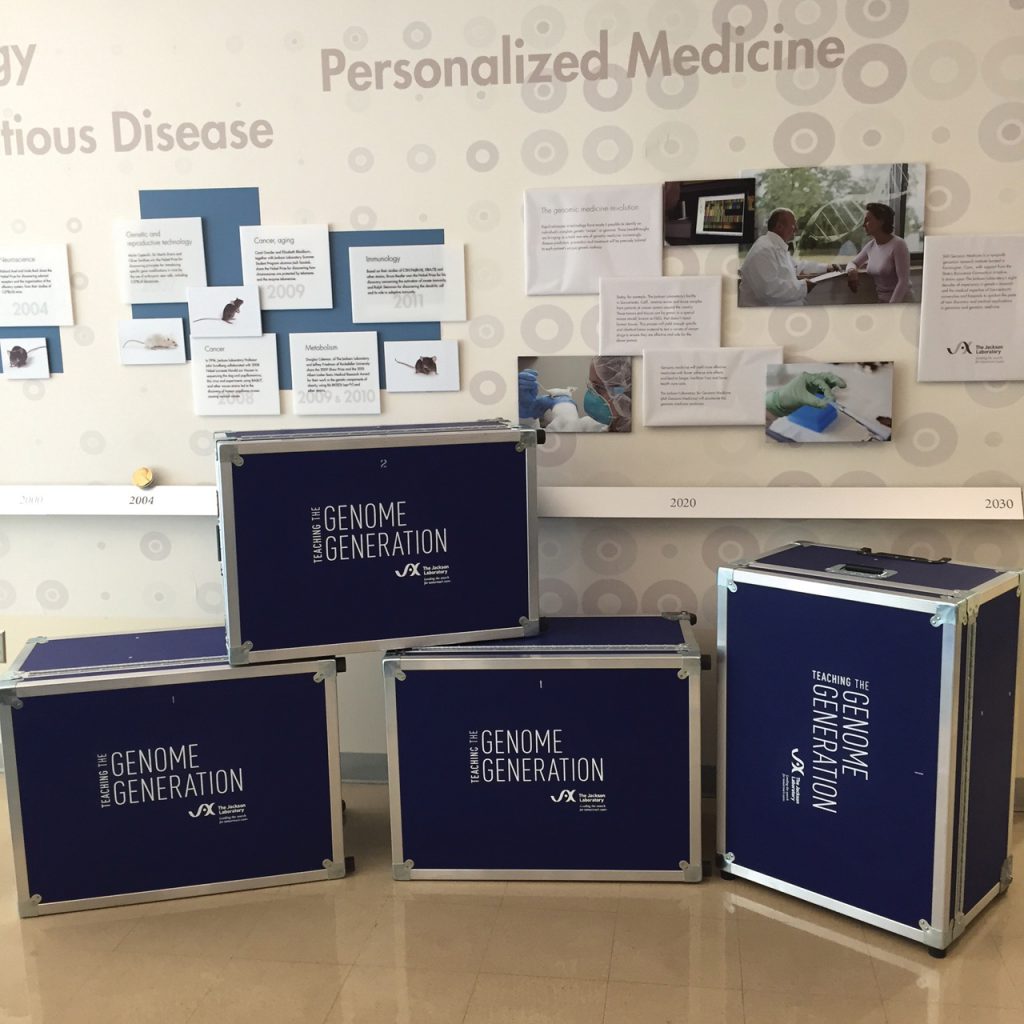
This article was originally posted by Scientia. To view the full article, click here.
Since the release of the first human genome, our understanding of genetics has grown significantly. However, keeping up with developments in the field can be overwhelming for students, and even teachers. Charles Wray, PhD., of The Jackson Laboratory has created a unique program, ‘Teaching the Genome Generation™’ or ‘TtGG’, to address this issue. TtGG aims to inform and train high school teachers, and in turn, increase student literacy in genomics and interest in STEM careers.
Society Needs Robust Genomics Education
Genetics is the study of heredity, or how the characteristics of living organisms are transmitted from one generation to the next through DNA. Genetics research typically involves the study of a specific gene, limited numbers of genes, or parts of genes. Genomics, on the other hand, investigates the entirety of an organism’s DNA – both genes and non-coding DNA – called the genome.
The field of genomics has exploded in recent times. In 2003, after 13 years of hard work on the part of scientists across the globe, the Human Genome Project released the first reference genome sequence. This project was a joint venture to determine the exact order of all the DNA that makes up the human genome. Now, 16 years after the release of the first human genome, and driven by significant technology developments in high throughput DNA sequencing, one genome became dozens, hundreds, thousands and now hundreds of thousands of genome sequences. Not a month goes by without the publication of new human genome sequences.
Indeed, as technology and computing techniques improve, the study of genetics and genomics has advanced by leaps and bounds. With such advancement in genomics, comes incredible levels of complexity. While both general and scientific media try to cover and explain the developments, confusion can arise. Genomic complexity can confound learners at any level, including high school students. Nevertheless, many of the foundational concepts are understandable, if they are explained and taught correctly. Unfortunately, many educators are not trained or equipped to teach basic genomics.
To address this, Charles Wray of The Jackson Laboratory and his colleagues have created a special professional development program called ‘Teaching the Genome Generation™’, or ‘TtGG’. TtGG provides training to teachers so they can improve how they teach genomics at the high school level. The program helps educators to stay abreast of genomics research and integrate up-to-date content into their lessons. In commenting on TtGG, Dr Wray explains, ‘we are working hard to modernise genetics and genomics education at the high school level, and we’re doing this by providing lessons, teaching materials and resources for teachers. We seek to make genetics, genomics, bioinformatics and bioethics exciting for students and teachers, and in so doing, foster STEM careers.’
Teaching the genome generation
The Jackson Laboratory is leading genomics education in the high school classroom.